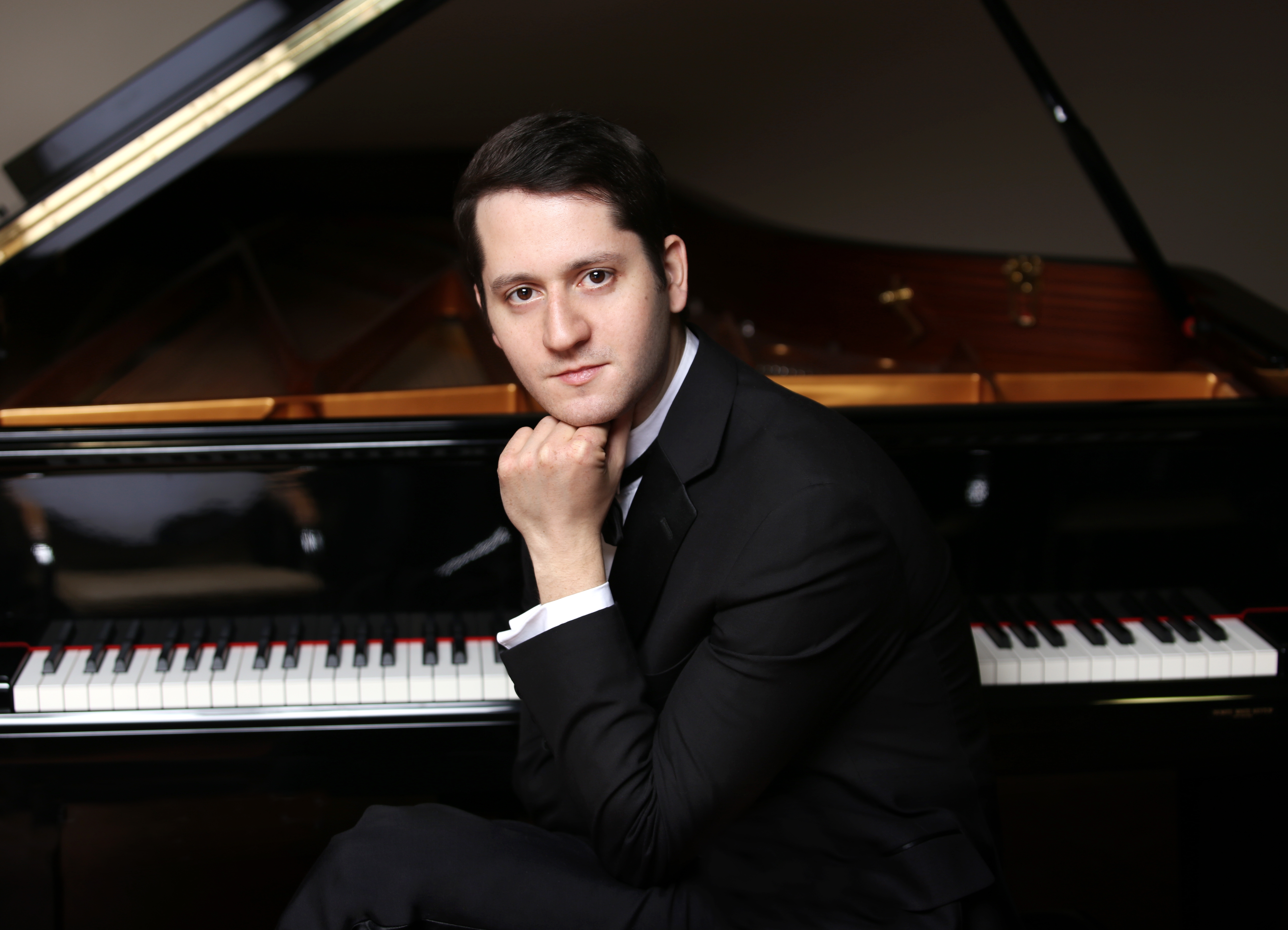The Gilmore Keyboard Festival welcomed Russian piano virtuoso Nikita Mndoyants to the Wellspring Theater in Kalamazoo on Sunday evening for the third installment of its Rising Stars series. Rising Stars offers an opportunity to see small recitals from up-and-coming artists in the world of classical piano, and 29-year-old Mndoyants performed for a full house clearly eager to enjoy his talents in such an intimate setting.
Mndoyants performed three piano sonatas by Haydn, Beethoven and Brahms along with an original intermezzo in a performance that ran about an hour and a half. He ended the evening with not one but three encore performances, which were clearly more than the delighted audience expected.
For the first sonata of the program, Mndoyants delivered a quick, sparkling rendition of Haydn’s Sonata in E Major, a piece that was easily the lightest and most cheerful selection in the program. The piece was deceptively simple and pleasant to listen to while also showcasing the pianist’s agility, his command of the extreme ends of the keyboard, and his affinity for shimmering trills. Mndoyants’ performance style was vigorous; he clearly poured every ounce of energy and concentration directly into his craft, moving rigidly and furrowing his brow even at the Sonata’s most playful sections.
Mndoyants seemed much more at home with his second selection of Beethoven’s Sonata No. 32 in C Minor. The dark, majestic first movement finally saw the intensity of the music match the enthusiasm of the pianist, whose sharp breaths and occasional droplet of sweat were a physical testament to the passion and force he gave to the performance. The Sonata’s second and final movement, meant to be played “very slow, simple and in a singing style,” didn’t offer quite as many opportunities for the performer’s seemingly natural state of intensity to shine, but was gorgeous nonetheless.
After a 15-minute intermission, Mndoyants returned to the stage to give the audience a taste of his personal composition style with a brief original Intermezzo. Unsurprisingly, given the performer’s penchant for hammering bass notes and stormy, chaotic moods, the original piece featured a basso ostinato and dark — at times, dissonant — melodies and echoes that lingered in mind long after the very short performance had finished.
The evening’s final sonata was Brahms’s Sonata No. 3 in F Minor, another piece that opened on a dramatic note and featured repetitive, moody bass phrases throughout the first movement. The hopeful second movement hit like a peak of sunshine after a hard storm; it was soft and pretty, and again, didn’t leave much room for Mndoyants to hammer out the intense, complex phrases he impressed with in the Beethoven Sonata and his original Intermezzo. Luckily the fourth movement, played andante molto, saw a return to that very style the pianist seemed to favor.
After receiving a standing ovation for the evening’s final Sonata, Mndoyants returned to the bench for a lengthy encore performance of Nocturne Op. 62 No. 1 by Chopin, a beautifully dark selection that felt right at home with the latter half of the evening’s program. Afterward, to the audience’s delight and surprise, the performer came back to the stage and played a quick, upbeat rendition of Rameau’s Les Sauvages.
Mndoyants rose, bowed and walked right back to the keys to perform again, an action that was met by gasps and giggles from the audience. For his final of three encore pieces, he played Purcell’s Ground in C Minor, another rhythm-driven piece that showed a different side of the artist’s repertoire than the audience was treated to during the program.
Overall, Mndoyants performed the program skillfully and beautifully, receiving rounds of applause every time he lifted his hands finally from the keys. The 29-year-old virtuoso certainly earned his seat among the 2018-2019 class of Gilmore Rising Stars.
Watch the livestream here.





